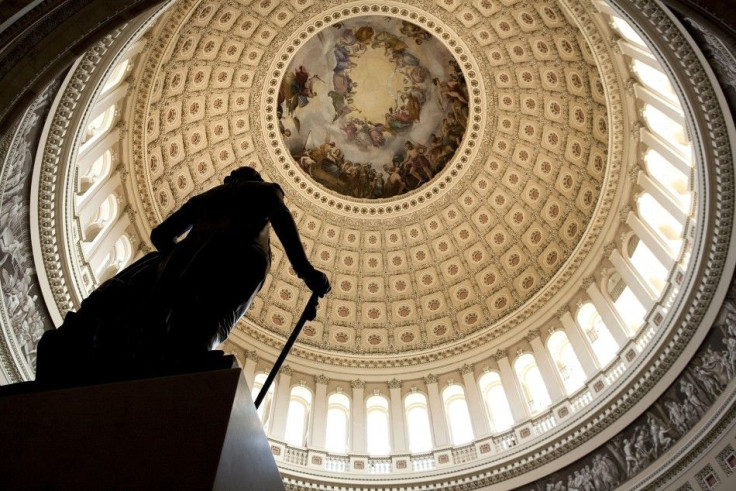Government Shutdown Possible, Due to Democratic, Republican Dispute Over Disaster Aid
ANALYSIS

Many if not most Americans probably concluded that after barely avoiding a U.S. government shutdown in the spring, and pushing the nation to the brink of default, Democrats and Republicans would end their longstanding, counter-productive feud, for the good of the nation.
If you thought along those lines, you're off the mark, as differences between Democrats and Republicans regarding how to fund disaster relief for the victims of Hurricane Irene and other disasters could result in a U.S. government shutdown on Oct. 1.
Oh, No -- Not Again?
Citizens who don't follow goings-on in Washington and other casual observers probably concluded that the next checkpoint for how the two parties are getting along was going to be the meetings of Congress' bipartisan, 12-member super committee -- which has the responsibility of finding an additional $1.5 trillion in debt reduction.
Further, because the super committee has a Thanksgiving deadline, the next scheduled, potential flare-up was expected to occur sometime in late November.
However, it looks like the parent Democratic and Republicans parties are going to preempt that potential conflict with yet another fiscal conflict.
Republicans want to offset the $3.65 billion allocated to help Hurricane Irene victims and other disaster victims with cuts to a program subsidizing more fuel-efficient cars. Democrats don't want that money cut.
Government Shutdown Could Occur
The dispute has the capacity to shut down the U.S. government because the disaster assistance is attached to a bill to fund the federal government through Nov. 18. The bill must be passed to keep the federal government open after Sept. 30. Next week, Congress is in recess.
We don't think that while fires are raging and while the waters are flowing is the time to come argue about how to find an offset, U.S. Sen. Mary Landrieu, D-La., told Bloomberg News Wednesday. We will eventually pay for it, but we can argue about that later. Right now, people need help.
The Hurricane Irene disaster assistance line item would allocate $3.4 billion to the Federal Emergency Management Agency and also provide $226 million to the U.S. Army Corps of Engineer. The disaster aid package also covers assistance to victims of the Midwest's tornadoes, and wildfires that have struck the nation.
Senate Minority Leader Mitch McConnell, R-Ky., said differences between Senate Democrats and Senate Republicans still exist, but he sees an agreement up ahead.
Congress always responds appropriately to disasters, McConnell told The Associated Press.We're having a discussion about the appropriate way to do that, and I'm confident it will be resolved.
However, Sen. Majority Leader Harry Reid, D-Nev., isn't so sure.
We're not going to cave in on this because it's a matter of principle, Reid told Bloomberg News, adding that Democrats are willing to remain in session next week to resolve the dispute.
Political/Public Policy Analysis: More partisan theatrics in Washington, but this time, the needless partisanship could prove costly -- particularly for the Republican Party. Polls almost universally show that voters are unhappy with Washington's acrimony and inability to find common ground on important issues.
What's more, Americans returned the Republican Party to power in the House in 2010 after the party said it would focus on the nation's No. 1 problem: jobs creation. But the jobs haven't appeared. What did follow? Obstructionist tactics, and a go nuclear stance -- a willingness by the GOP to put the nation at risk of a default or civil service paralysis to achieve partisan goals.
Combine the above data points with a 2012 Republican presidential campaign in which the candidates boast about cutting Medicare and changing the Social Security payout formula, and it doesn't take a political scientist to see that voters are becoming uneasy with a potential Republican-led federal government. The GOP is threatening to cut benefits in two very popular entitlement programs, and they've displayed a legislative stance that, at best, isn't fair, and at worst, is reckless.
In other words, the GOP is hurting its 2012 electoral chances, hence it's in the party's interest, and the Democratic Party's interest, to quit the brinkmanship and the posturing and find common ground. Above all, the American people want problems addressed.
© Copyright IBTimes 2024. All rights reserved.





















